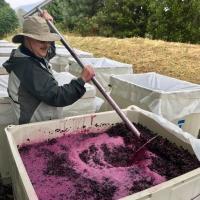-
Welcome to the eG Forums, a service of the eGullet Society for Culinary Arts & Letters. The Society is a 501(c)3 not-for-profit organization dedicated to the advancement of the culinary arts. These advertising-free forums are provided free of charge through donations from Society members. Anyone may read the forums, but to post you must create a free account.
Who is drinking Burgundy?
-
Similar Content
-
- 105 replies
- 18,125 views
-
- 285 replies
- 76,682 views
-
Drinks 2025
By Honkman,
- 13 replies
- 6,539 views
-
- 507 replies
- 92,068 views
-
- 1,169 replies
- 259,993 views
-
-
Recently Browsing 0 members
- No registered users viewing this page.






Recommended Posts